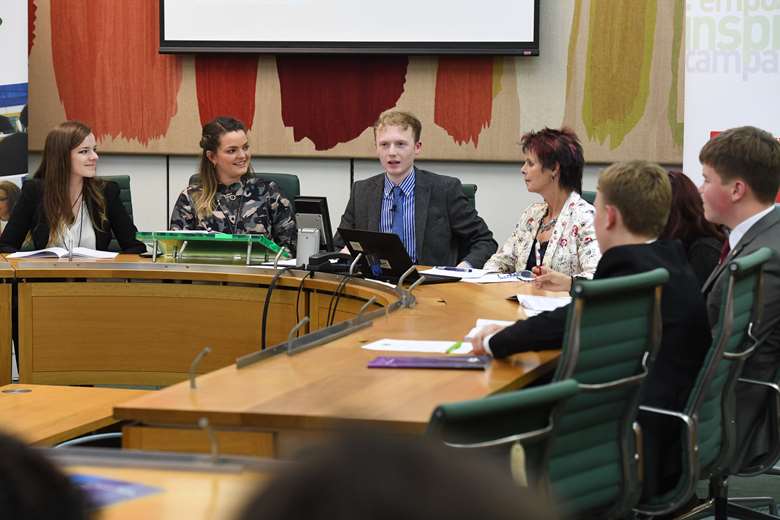Government promises action to combat negative body image
Joe Lepper
Monday, March 26, 2018
The government has pledged action to improve access to help and information for young people and professionals on combating negative body image.

In its response to a youth select committee report on body dissatisfaction, the government's equalities office has promised to carry out an audit of available information and resources.
The issue of body image was chosen as the topic for the committee's 2017 inquiry by around one million young people taking part in a ballot.
The committee, which is run by the British Youth Council, wants to see better access to body image information among young men, those with disabilities and LGBT young people.
While welcoming national efforts to improve access to information and support by a number of organisations, the committee's report, A Body Confident Future, highlights concerns that efforts are mainly directed at women.
"The government joins the youth select committee in commending the excellent work carried out by the Be Real campaign, Girlguiding, Sport England and others in promoting positive body image," the response of the government equalities office states.
"We will continue to seek opportunities to support these campaigns to encourage body confidence. However, we recognise that young people, parents and teachers may not always know where to go to find quality resources on body image.
"To address this, we will conduct an audit of available resources, including on the gov.uk website."
The government has also pledged to better understand body image perceptions among specific groups, including young men.
"We recognise that gaps remain in our understanding of the many complex factors that contribute to body dissatisfaction, including specific challenges faced by young men, LGBT youth, ethnic minorities, and those with disabilities or serious illnesses," the government response adds.
"We will therefore consider how we can develop our understanding of these specific groups as part of our broader endeavour to better understand the causes and impact of body dissatisfaction."
Youth select committee chair Thomas Copeland welcomed the government's acknowledgement that body dissatisfaction is a concern for young people.
He said: "We are pleased to see the government have not only recognised the importance of body image but have also acknowledged gaps in its understanding of the many complex factors that contribute towards body dissatisfaction.
"The government have made a number of commitments in their response, including a commitment to further understand how body dissatisfaction affects different groups.
"We look forward to seeing how the government goes on to ensure their commitments are implemented as soon as possible. Young people's mental health and wellbeing must be taken seriously if we are to mitigate the detrimental effects of body dissatisfaction."
However, there are a number of other committee recommendations that the government has declined to put in place.
This includes a call by the committee to appoint dedicated equalities ministers. The committee is concerned that currently equality ministers are unable to provide the "necessary leadership on body image" as they also have education responsibilities, because the equalities office is part of the Department for Education (DfE).
But the government said this the dual ministerial portfolio is "beneficial" as it helps ensure equality issues are embedded throughout the DfE.
Meanwhile a recommendation of the committee that the personal, social, health and economic (PSHE) curriculum make explicit reference to promoting positive body image has also been turned down.
The government's response states that schools have autonomy to tailor PSHE and sex and relationship education to their pupils' needs.
In addition, the committee called for funding for emotional and mental health support in schools be protected by a ringfenced budget. They are concerned that funding is being used elsewhere.
In its response the government says it has a "range of support, leavers and incentives" to ensure clinical commissioning groups (CCGs) spend mental health funding as intended, such as publishing their spend on children and young people's mental health.




